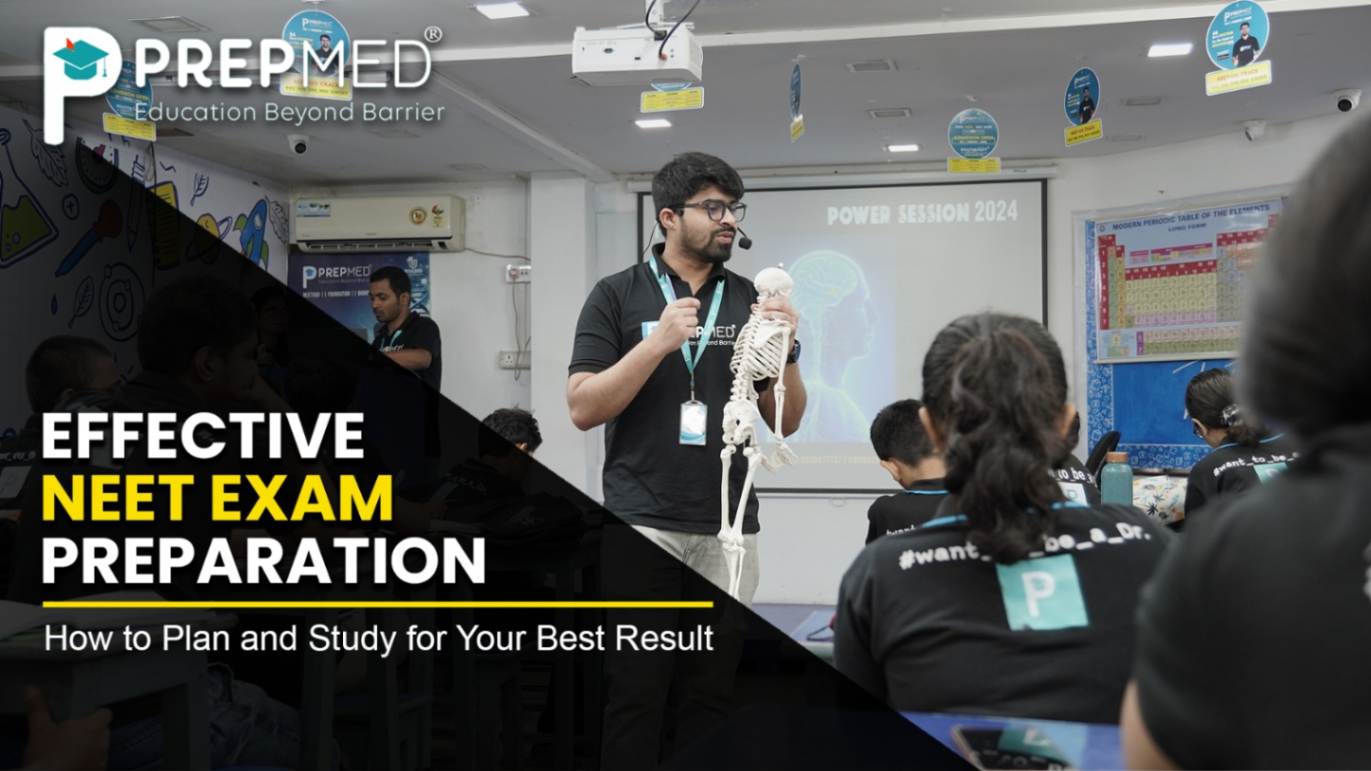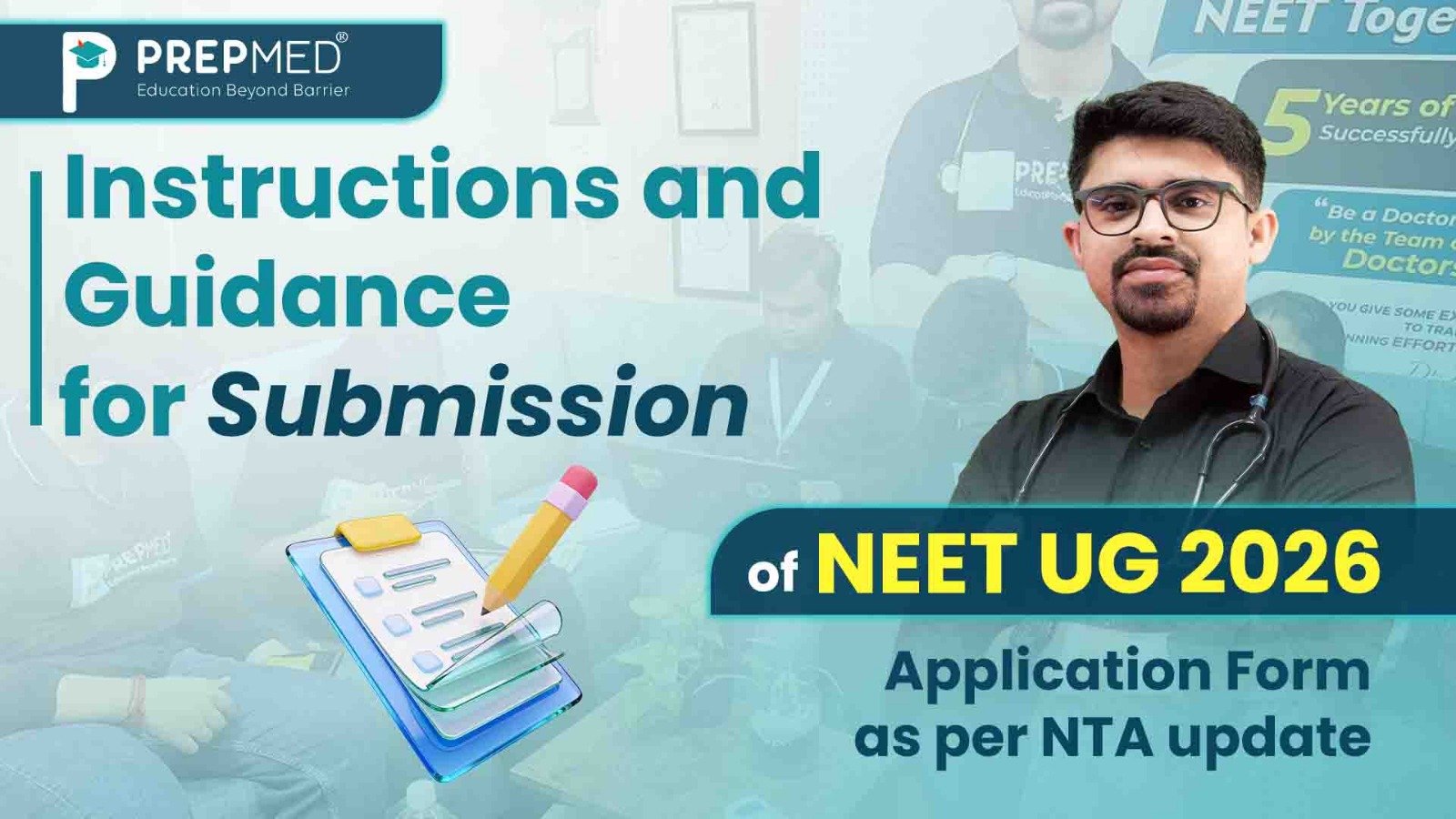September 02, 2024
Effective NEET Exam Preparation: How to Plan and Study for Your Best Result
The National Eligibility cum Entrance Test (NEET) is an important milestone for Indian medical aspirants. The exam is conducted by the National Testing Agency (NTA). It is a paving stone for appearing in undergraduate medical courses across India. With this single entrance exam, students can get admission to MBBS, BDS, or other medical courses at the undergraduate level in recognized medical colleges.
Eventually, with more people competing for the exam every year, preparing for it in advance is necessary to secure a seat in popular medical colleges. This article will comprehensively guide you with valuable tips and strategies to develop significant insight into the exam. Effective planning requires following a particular format to boost motivation and consistently fight to crack this nut.
A. Eligibility criteria:
Students are required to understand the knocks and crevices of the NEET exam before preparing.
- Qualification: Aspirants aiming to appear for the NEET exam and pursue a medical course must have studied Chemistry, Physics, Biology, and English at their 10+2 level.
- Age: The minimum age limit to sit for the exam is 17 years, which ends at 25 years as the maximum age limit.
- Nationality: People with Indian citizenship, Non-Resident Indians (NRIs), Overseas Citizens of India (OCI), Persons of Indian Origin (PIO), and even foreign nationals can take the NEET Exam.
B. Exam structure:
Understanding the structure of the NEET exam can initially assist students in making a well-structured plan for success.
- Subject: Chemistry, Physics, and Biology (including zoology and botany)
- Questions: In total, 180 questions (chemistry and physics - 45 questions, biology - 90 questions)
- Duration: 3 hours
C. Study Plan for the NEET Exam:

Creating a realistic, well-structured study schedule is crucial for perfect exam preparation. As an aspirant, no one can beat you if you follow the following plan to prepare for NEET.
- Set realistic goals: Differentiate between the small goals and big leaps. So, plan short-term weekly and monthly goals to achieve bigger goals. In addition, long-term goals will be to do multiple revisions and appear for several mock tests of the whole syllabus.
- Study routine: Segregate your whole syllabus into three specific times with a specific subject focus. Likewise, the whole morning can be scheduled to focus on Biology. After lunch, the afternoon can be divided into both Physics and Chemistry. Keep your evenings for mock tests and practice question papers.
D. Study materials:
- Students widely study different reference books from popular publishers and writers on these three subjects to cover the syllabus of the NEET Exam. Famous reference books include H.C. Verma for Physics, O.P. Tandon for Chemistry, and Trueman’s Biology.
- However, the NCERT books are foundational for preparing for the NEET examination.
- Moreover, aspirants must leverage online platforms for video lectures, study guides, question papers, and practice tests to achieve higher scores in the NEET Exam.
E. Topics:
Apart from skimming through the entire syllabus multiple times, the NEET exam-specific topics are important. Focusing on these areas of the three subjects can ensure excellence and success in the NEET examination. Prioritize difficult chapters or topics and focus on a thorough understanding of essential concepts to augment performance.
- In Biology, the students must emphasize human physiology, genetics, and environment.
- Meanwhile, highlighting the organic chemistry, molecular structure, chemical bonding, and coordination of compounds is crucial for chemistry.
- Furthermore, mechanics, electrodynamics, and thermodynamics are essentials in physics.
F. Revision strategies:
- Reappearing in regular practice tests is essential for students to develop and simulate actual exam conditions. Consequently, sitting for a full-length NEET exam in a strictly timed environment can assist them in analyzing their performance.
- In addition, reviewing and working on the weak points improves the scores and identifies and incorporates methods for proper time management.
- Besides, using flashcards to highlight specific chemistry reactions, mathematics or physics formulas, or any other essential concepts can be beneficial for better memorization.
- As the NEET exam covers a vast syllabus, reviewing and revising the studied materials daily can reinforce memorization capacity.
- The NEET students must also reflect on their previous mock exam results and identify trends and patterns to understand their drawbacks and strengths better.
G. Eliminating negative marking:
The NEET preparers must be aware of and alert about negative markings by eliminating incorrect answers. It is crucial to read, think, and analyze each question carefully before attending to narrow down wrong answer choices. Proper and regular practice of the elimination technique through appearing in mock exams will keep the NEET students focused, calm, and composed while confused about multiple conceptual options.
It will also help the students maintain scores by correctly answering unsure questions. This way, the aspirants can pass to the next question without wasting time or sticking to a particular question for long.
H. Stay positive and healthy:
The students must undergo immense exam preparation. So, get ready to buckle up with a lot of physical energy and psychological strength to fight back the difficulty of the NEET Exam.
- First, stay adequately healthy and hydrated to boost your bodily energy and put all your efforts into studying. Incorporate a diet with nutritious food comprising higher protein, fiber, and other essential nutrients at a balanced level. Adding vitamins, minerals, good fats, and carbohydrates is vital to healthy living; it can significantly change NEET-preparing students' physical and psychological well-being. Proper hydration and enough water intake throughout the day can also improve health and well-being.
- Students often feel lethargic for regular exercise. Thus, suggestively aspirants for the NEET examination must walk for at least 40 minutes to boost cortical functioning. Consequently, it will improve your memory, attention, concentration, information-processing ability, learning capacity, and other executive functions of the brain.
- Most importantly, mental health is a key component for better preparation for students appearing in the NEET examination. Stress, burnout, and anxiety can cumulatively negatively impact the overall ability and performance of the students. So, following effective stress management techniques like a balanced and realistic study plan, practicing mindfulness, taking short intervals, sublimating negative emotions through constructive habits and affirmations, joining study groups, and rewarding oneself with small tokens for completing any milestone of the NEET Exam can increase positive psychological health outcomes.
- Consulting with professional healthcare providers for any physical and psychological health issues can prevent the development of further critical conditions in NEET aspirants.
- Getting good, tight sleep at night for at least 7 to 8 hours can relax and recharge your body and mind. A well-rested brain is highly capable and alert, retaining important information and learning faster. Brain health and a healthy sleep cycle are intertwined. So, for accurate NEET exam preparation, aspirants must balance study, and good sleep is inevitable to ensure proper health maintenance.
In conclusion, students preparing for the NEET exam need to follow and include a holistic approach. Thus, following a structured schedule focusing on each physics, chemistry, and biology concept and developing a strong conceptual basis for each subject is necessary. In addition, creating a realistic study strategy, following advancing tips for expedited progress, and choosing effective study materials can maximize the performance level.
Furthermore, self-reflection about strengths and weaknesses, eliminating wrong or unsure answers, and learning time management accelerate the chances of success in the NEET examination. In addition, protecting psychological and physical health is another key to maintaining a positive mindset towards the difficult journey of NEET preparation and increasing the chance to crack it successfully.






